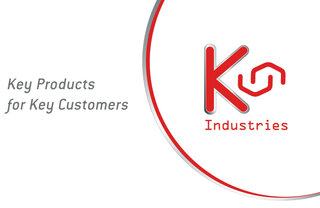Standards und Richtlinien für ANSUL Löschsysteme
- UL 300 und 2092
- NFPA 17A und 96
- LPCB
- DIN EN 16282-7
- DIN EN 17446
- VdS
- Berufsgenossenschaft Nahrungsmittel/ Gaststätten
Was heißt UL300 und welche Standards umfasst es:
UL 300 is a fire-safety standard for commercial kitchens created by Underwriters Laboratories. In order for a piece of equipment to earn UL 300 certification, Underwriters Laboratories must test and certify it independently.
In essence, UL 300 helps restaurants reduce their risk of kitchen fires by ensuring that their cooking equipment and kitchen setup minimize the collection of grease in ductwork and in the air. It also requires that restaurant owners’ fire-extinguishing equipment is adequate for handling the extremely hot temperatures found in most commercial equipment.
In order to earn UL 300 certification, a kitchen’s cooking equipment must have:
- Fire-extinguishing nozzles in the hood, ducts, and above each cooking appliance
- An automatic fuel shut-off capabilities for both gas and electric power sources
- A manual fuel shut-off pull for all power sources
- A wet-chemical fire-extinguishing system that meets UL 300 criteria (one of which is undergoing semiannual checkups by a certified professional)
In addition, UL recommends weekly cleanings of grease filters.
Was heißt NFPA und welche Standards umfasst es:
NFPA 96 is a publication of the National Fire Prevention Association, a group that works to prevent fires in restaurants and other places that have commercial kitchens. NFPA 96 outlines safety guidelines that restaurant owners can implement to reduce their risk of fires. Among the guidelines included in NFPA 96 are specifications for how much distance should be kept between exhaust hoods and cooking surfaces, what angles hoods should be installed at, and what kind of exhaust filters cooking gear should have installed.
NFPA 96 also outlines how ducts should be constructed, how large they should be, what material they should made of, and the angle at which they should leave the building. While the specificity of the guidelines may seem daunting, it actually makes life easier for restaurant owners by eliminating the guesswork from setting up a safe kitchen.
The NFPA publishes its guidelines based on statistics gathered from restaurants around the country. By identifying the most common causes of fires, the group finds ways that restaurant owners can minimize their risks – and potentially cut down on their restaurant insurance costs.
Was heißt LPCB und welche Standards umfasst es:
The Loss Prevention Certification Board (LPCB) is a globally recognised third-party certification body delivering certainty for over 150 years. Part of BRE, the LPCB has worked with industry and insurers since 1868 to set the standards needed to make sure that fire and security products and services perform effectively. The LPCB’s Loss Prevention Standards (LPS) are widely recognised and applied in fire and security sectors around the world. The LPCB also offers third-party certification to confirm that products and services have met, and will continue to meet, these standards. Full details of the Loss Prevention Standards (LPS) are available on RedBook Live.
